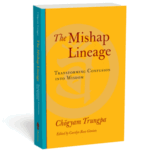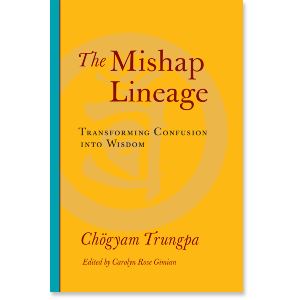Excerpt reprinted with permission from Tricycle Magazine
Reviewed by Stuart Smithers
I almost met Chogyam Trungpa. When I arrived at the steps of the New York Historical Society, just off Central Park, there was a notice posted on the massive wooden doors: Trungpa RinpocheÕs talk had been canceled for health reasons. I was disappointed, and didn't realize at the time that he would soon die and I would never have the chance to see him teach. I was young, studying Buddhism at Columbia University. Chogyam Trungpa wasn't part of my academic agenda, but I was excited and touched by his reputation and early books. Fresh, maybe a little wild, unpredictable, but mostly he sounded like he was authentic, with both feet on the ground.
Through the years I have kept up with my Trungpa reading, supplementing books with conversations with his students. The video and audio recordings have given me a different sense of the man, particularly his voice and what singers might call his 'phrasing.' I am delighted when new material appears, but there is also something bittersweet about the loss and the disappearance of figures like Trungpa. Looking back on these encounters and missed meetings, it now feels as though the seventies and eighties were like that: fate or luck seemed to be playing a part in all of this.
The Mishap Lineage is the edited version of a seminar Trungpa gave in December 1975 on the lineage of the Trungpa tulkus, or Trungpa reincarnations, which began in the fifteenth century. But Trungpa's personal reflections on the lives of the Trungpas were primarily means to encourage students to practice-'to sit a lot,' as he was fond of sayingÑand to invite questions about fundamental principles of Kagyu teachings, and to reflect on the obstacles, challenges, and possibilities of building a community that supports practice. How to build a sangha seems to be the driving motive behind the seminar talks...


